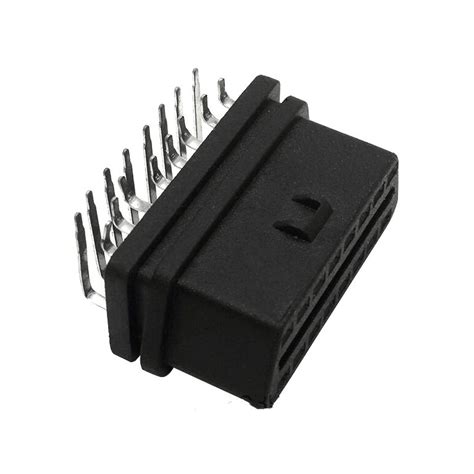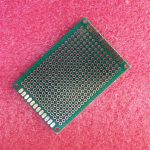What is ODB++?
ODB++ is a data format developed by Mentor Graphics (now a part of Siemens) to facilitate the transfer of PCB design data between various software tools and manufacturing processes. It is an open, vendor-neutral format that includes all the necessary information for PCB fabrication and assembly, such as:
- Board layout and dimensions
- Layer stackup
- Bill of Materials (BOM)
- Component placement data
- Drilling and routing information
- Netlist and test points
By consolidating all this information into a single, standardized format, ODB++ simplifies the data exchange process and reduces the risk of errors or misinterpretations.
Benefits of Using ODB++ Files in PCB Assembly
There are several key advantages to using ODB++ files when working with PCB assembly service providers:
1. Improved Data Integrity
ODB++ files contain all the necessary information for PCB fabrication and assembly in a single, structured format. This eliminates the need for multiple files and reduces the chances of data corruption or loss during the transfer process.
2. Enhanced Collaboration
The standardized nature of ODB++ files allows for seamless collaboration between PCB designers, manufacturers, and assembly service providers. All parties can access and interpret the same data, ensuring that everyone is on the same page throughout the production process.
3. Faster Turnaround Times
By using ODB++ files, PCB assembly service providers can streamline their processes and reduce the time spent on data preparation and verification. This can lead to faster turnaround times and shorter overall project durations.
4. Reduced Costs
The improved efficiency and reduced error rates associated with ODB++ files can help lower overall production costs. By minimizing the need for manual data entry and reducing the likelihood of costly mistakes, PCB assembly service providers can offer more competitive pricing to their clients.
5. Increased Flexibility
ODB++ files are compatible with a wide range of PCB design software and manufacturing equipment. This flexibility allows designers to choose the tools that best suit their needs and enables assembly service providers to work with a broader range of clients and projects.
Top PCB Assembly Service Providers that Accept ODB++ Files
Now that we’ve explored the benefits of using ODB++ files, let’s take a look at some of the leading PCB assembly service providers that accept this format:
1. PCBWay
PCBWay is a well-established PCB manufacturer and assembly service provider that offers a wide range of solutions for both prototyping and production. They accept ODB++ files and provide a user-friendly online platform for quoting, ordering, and tracking projects.
| Service | Capabilities |
|---|---|
| PCB Fabrication | Prototype and production quantities, various materials and finishes |
| PCB Assembly | SMT and through-hole assembly, component sourcing, testing |
| PCB Design | PCB layout and design services, design for manufacturability (DFM) review |
2. Seeed Studio
Seeed Studio is a hardware innovation platform that offers PCB fabrication and assembly services for makers, startups, and enterprises. They accept ODB++ files and provide a streamlined ordering process through their online platform, Seeed Fusion.
| Service | Capabilities |
|---|---|
| PCB Fabrication | Prototype and low-volume production, various materials and specifications |
| PCB Assembly | SMT and through-hole assembly, component sourcing, testing |
| PCB Design | PCB layout and design services, design review and optimization |
3. Advanced Circuits
Advanced Circuits is a North American PCB manufacturer and assembly service provider that caters to a wide range of industries, including aerospace, medical, and telecommunications. They accept ODB++ files and offer a variety of manufacturing options to suit different project requirements.
| Service | Capabilities |
|---|---|
| PCB Fabrication | Prototype and production quantities, rigid and flexible PCBs, various materials and finishes |
| PCB Assembly | SMT and through-hole assembly, component sourcing, testing, box build |
| PCB Design | PCB layout and design services, signal integrity analysis, DFM review |
4. EuroCircuits
EuroCircuits is a European PCB manufacturer and assembly service provider that specializes in quick-turn prototyping and low-volume production. They accept ODB++ files and offer an intuitive online platform for quoting, ordering, and tracking projects.
| Service | Capabilities |
|---|---|
| PCB Fabrication | Prototype and low-volume production, various materials and specifications |
| PCB Assembly | SMT and through-hole assembly, component sourcing, testing |
| PCB Design | PCB layout and design services, design rule checks (DRC), DFM review |
5. Sunstone Circuits
Sunstone Circuits is a US-based PCB manufacturer and assembly service provider that focuses on providing high-quality, quick-turn solutions for prototyping and low-volume production. They accept ODB++ files and offer a range of value-added services to support their clients’ projects.
| Service | Capabilities |
|---|---|
| PCB Fabrication | Prototype and low-volume production, various materials and specifications |
| PCB Assembly | SMT and through-hole assembly, component sourcing, testing |
| PCB Design | PCB layout and design services, DFM review, assembly drawing creation |

Frequently Asked Questions (FAQ)
1. What is the difference between ODB++ and Gerber files?
ODB++ is a comprehensive, intelligent format that includes all the necessary information for PCB fabrication and assembly in a single file. In contrast, Gerber files are a set of individual files that contain different aspects of the PCB design, such as copper layers, solder mask, and drill data. While Gerber files are still widely used, ODB++ offers a more efficient and streamlined approach to data exchange.
2. Can I generate ODB++ files from any PCB design software?
Most popular PCB design software packages, such as Altium Designer, KiCad, and Eagle, support the generation of ODB++ files. However, the exact process for exporting ODB++ files may vary depending on the software you are using. Consult your software’s documentation or contact the vendor for specific instructions.
3. Are there any limitations to using ODB++ files in PCB assembly?
While ODB++ files offer many benefits, there are a few limitations to consider. Some older or less common PCB manufacturing equipment may not be compatible with the ODB++ format, which could limit your choice of assembly service providers. Additionally, some complex or non-standard design features may not be fully supported by the ODB++ format, requiring additional communication or file formats.
4. How do I ensure my ODB++ files are correctly formatted for my chosen assembly service provider?
Most PCB assembly service providers that accept ODB++ files will provide detailed instructions or guidelines on how to prepare and submit your files. These guidelines may include specific requirements for layer naming conventions, drill data, and component placement information. Be sure to carefully review and follow these guidelines to avoid delays or issues with your project.
5. Can I use ODB++ files for both prototype and production runs?
Yes, ODB++ files can be used for both prototyping and production runs. The comprehensive and standardized nature of the format makes it suitable for projects of any scale, from small prototype batches to large-volume production runs. However, it’s always a good idea to communicate with your chosen assembly service provider to ensure that your files are optimized for their specific processes and equipment.
Conclusion
ODB++ files offer a powerful and efficient solution for exchanging PCB design data between designers, manufacturers, and assembly service providers. By consolidating all the necessary information into a single, standardized format, ODB++ streamlines the production process, reduces the risk of errors, and enables faster turnaround times.
When choosing a PCB assembly service provider, it’s important to consider their capabilities, expertise, and support for the ODB++ format. The providers highlighted in this article – PCBWay, Seeed Studio, Advanced Circuits, EuroCircuits, and Sunstone Circuits – are all well-established companies that accept ODB++ files and offer a range of services to meet the needs of different projects and clients.
By leveraging the benefits of ODB++ files and partnering with a reliable assembly service provider, you can ensure that your PCB projects are completed efficiently, accurately, and cost-effectively.






Leave a Reply